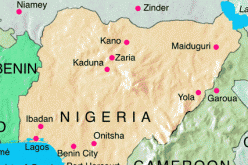Classfmonline.com – The decision by Ghana to “mortgage” its oil for 20 years, when prices of crude were high on the international market, was an “unwise” decision, which has plunged the country into “worry” following the sharp fall in the price of the commodity, Pastor Mensa Otabil has said.
Citing Ghana’s oil situation as an example to teach his congregation about the need for people to “reinvest” in their businesses in times of abundance, the General Overseer of the International Central Gospel Church (ICGC) said on Sunday April 17, 2016 that: “One of the big problems we have in our country [is] people culturally don’t reinvest in their business; we make money and blow all the money; the nation does it, [too].”
“We discovered oil, we sold ourselves for the next 20 years, mortgaged the oil, then oil prices went to $30, now we are worried, what should we do, there’s nothing beyond oil, what else are you going to do?
“Because we think the prices will be high forever, we think it will be good forever, only an unwise person thinks it will be good for ever, it will not be good forever, the wise man is the Joseph who plans in [times] of abundance anticipating scarcity, so, when scarcity comes, it’s as if he is still in abundance and actually grows bigger because everybody else is in trouble, now he can grow bigger,” Dr. Otabil said.
From 2010 until mid-2014, world oil prices had been fairly stable, at around $110 a barrel. But the commodity took a major plunge in June 2014 and has yet to revert to its time of boom. Early this year, the price of oil almost sunk to a 13-year low at $20 per barrel, primarily owing to a supply glut. The price is currently hovering around the $40 mark, but industry players and analysts think it will take many years before it climbs to the $90 and $100 marks, which used to be norms a few years ago.
Ghana discovered oil in commercial quantities in 2007 and started commercial production in 2011. The country produces around 100,000 barrels per day from the offshore Jubilee field, which contains up to 3 billion barrels (480,000,000 m3) of sweet crude oil.
Ghana also plans to start production of oil and gas from the Tweneboa-Enyenra-Entomme (TEN) field this year. The U.S.$7-billion deal between Ghana and Italian energy firm, Eni, is to produce oil and gas at Cape Three Points. The Offshore Cape Three Points (OCTP) integrated oil and gas project, as it is called, will see Eni in collaboration with Vitol Energy, develop the Sankofa and Gye Nyame fields to supply gas to operate Ghana’s thermal power plants for 20 years.
Oil production from the OCTP is estimated at 80,000 barrels per day, while gas comes on board subsequently.
The project will deliver 170 million cubic feet of gas per day and it is expected to generate an additional 1,100 megawatts of power for Ghana.
Gas will be processed and transported via a dedicated pipeline to onshore gas-receiving facilities located near Sanzule, a coastal village in the Western Region.
The gas will also be compressed and injected into the Western Corridor Gas Pipeline for transportation to industrial customers in Ghana.
Crude oil will also be stored in the FPSO and offloaded to tankers for sale on the international market.











